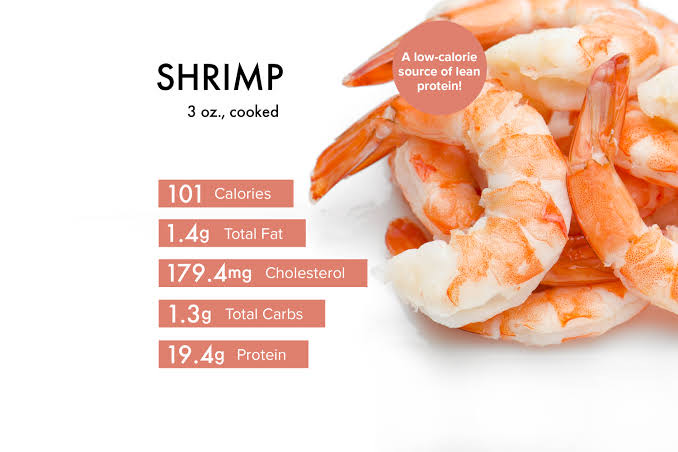Diet is an integral component of our holistic well-being. Today, as people are increasingly conscious of what they consume, the pressing need to eat meals that are healthy, balanced, and packed with nutrients becomes crucial. While there are several ingredients categorised as superfoods, various others, especially chicken and eggs, are known for their high nutritional quotient. Shrimp is one such seafood that offers delectable culinary experiences but is a nutritional powerhouse as well.
Among the plethora of options available, shrimp can be a wise choice for athletes, fitness enthusiasts, and people on their weight management journeys. It stands out for its low calorie, carb, and fat content while being rich in protein and essential vitamins and minerals. In fact, the total fat content in just 3 ounces of shrimp is even less than 2 grams. A hundred grams of cooked shrimp provide 99 kilocalories of energy, making it one of the most nutrient-dense foods. Let’s delve deeper into the nutritive profile of shrimp and how it’s incorporation into our daily diet can provide us with several health benefits:
Protein-rich food
Shrimp is one of the high-protein foods available today, offering lean and clean protein. In every 100 grams of serving, we get nearly 24 grams of protein. This makes shrimp a great choice for people who are keen to improve their health and increase their protein intake without consuming excessive calories or unhealthy fats. Additionally, it contains essential amino acids that help in optimal body functioning.
High vitamin and mineral content
These delicious crustaceans also provide significant quantities of vitamins A and C, along with calcium and iron. An 84-gram serving of shrimp provides 4% of the daily intake of these vitamins and 6% and 10% of calcium and iron, respectively. Shrimp also contains high levels of vitamin B12, which is essential for the optimal functioning of the nervous system and the production of red blood cells.
Rich source of omega-3 and antioxidants
Being a rich source of omega-3 fatty acids, shrimp is known to be a heart-healthy food that promotes bone health as well. Additionally, its high selenium content boosts overall health and immunity levels. Including shrimp in our daily diet helps maintain iodine levels crucial for optimal thyroid function.
Currently, India is one of the largest shrimp exporters to the US and EU. The Indian shrimp market is expected to be valued at 2.12 million tons, exhibiting a 9.6% CAGR growth between 2024 and 2032. The growing demand for healthier food alternatives, shrimp’s nutritional value, and the shift towards sustainable farming practices will drive its consumption in the times to come.
Shrimp supports weight management and health maintenance. Even its by-products, including heads, shells, and tails, are a storehouse of minerals, protein, and chitin. There are various recipes that can be prepared with shrimp to relish its succulent taste and retain its nutritional quotient. You can bake, boil, grill, skew, or even cook shrimp with less or no oil. You can also sauté it with veggies, add it as a protein component to your salads, prepare dips and appetisers with shrimp, and much more. Hence, it can be easily incorporated into our daily diet plans, and we can savour culinary delights while nourishing our bodies with essential vitamins and minerals.
(The author, Aditi Thakore, is the Communications Manager at Aquaconnect.)




